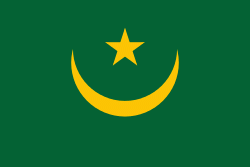Gorgol Region (Gorgol)
As of 2013, the population of the region was 335,917, compared to 310,656 in 2011. There were 48.23 per cent females and 51.77 per cent males. As of 2008, the activity rate was 48.90 and economic dependency ratio was 1.24. As of 2008, the literacy rate for people aged 15 years and over was 40.50. The location government is headed by an elected district representative, while the elections for the local government are conducted every five years. On account of the political instability, the last elections were held in 2006.
Mauritania is mostly covered with desert, with only its western regions around the coast of Atlantic Ocean having some vegetation. There are some oasis in the desert regions. Since it is a desert, there are large shifting dunes forming temporary ranges. The average elevation is around 460 m above the mean sea level. The rainfall in the northern regions closer to the Tropic of Cancer receives around 100 mm of annual rainfall compared to the southern portions that receives around 660 mm. The average temperature is 37.8 C, while during the night it reaches 0 C. Due to the geography, the inhabitants historically, have been nomadic. In modern times, people have migrated to urban centres during the drought in 1970 and 1980. There are a few sedentary cultivators, who are located only in the Southern regions of the country. Research has indicated that the Saharan movement has resulted in reduction of rains in the region from the 1960s, when it received close to 250 mm of rainfall.
Map - Gorgol Region (Gorgol)
Map
Country - Mauritania
 |
 |
| Flag of Mauritania | |
The country's name derives from the ancient Berber kingdom of Mauretania, located in North Africa within the ancient Maghreb. Berbers occupied what is now Mauritania beginning in the third century AD. Arabs under the Umayyad Caliphate conquered the area in the late seventh century, bringing Islam, Arab culture, and the Arabic language. In the early 20th century, Mauritania was colonized by France as part of French West Africa. It achieved independence in 1960, but has since experienced recurrent coups and periods of military dictatorship. The most recent coup, in 2008, was led by General Mohamed Ould Abdel Aziz, who won subsequent presidential elections in 2009 and 2014. He was succeeded by Mohamed Ould Ghazouani following the 2019 elections, which were considered Mauritania's first peaceful transition of power since independence.
Currency / Language
| ISO | Language |
|---|---|
| AR | Arabic language |
| FR | French language |
| WO | Wolof language |















